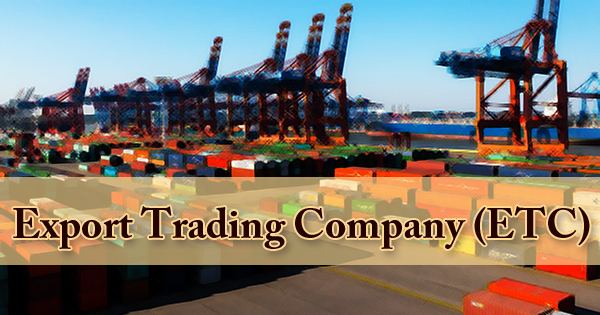An export trading company (ETC) is a company or an organization that works with different organizations associated with the trading industry. It offers help administrations to firms that have practical experience in trading. From the customer’s point of view, it would incorporate warehousing, delivering, protecting, and that’s only the tip of the iceberg. In addition, for different goods, export trading firms often comply with the legal requirements involved throughout the exporting process. In addition, export trading firms may assist producers to find overseas buyers and provide other important business information to them. A gathering of makers can likewise shape their own ETC. A model would be a fare exchanging organization helping an organization that works in one of the accompanying administrations above by finding a worldwide purchaser, in this manner extending market presence across the globe.
Indeed, the ETC functions independently of the business for which it provides services, even though the export company may have created it; it is essentially operating as another branch of the company. An Export Trading Company likewise gives data identified with the market and causes exporters to discover purchasers in the global market. The 1982 Bank Export Services Act requires commercial banks to operate and own ETCs in the arena of export trading companies. Investors around the U.S. will learn more about ETCs through the Foreign Trade Administration of the Department of Commerce.

Example of Export Trading Company
There are several benefits to using an ETC:
- Local Knowledge – Exporters are sponsored by an Export Trading Company (ETC) in many respects, such as providing necessary information on local rules, legislation and tax structures, etc. They build partnerships with marketers, suppliers, and distributors as well.
- Cost Efficiency – ETCs are able to provide exporters with billing, storage, and shipping facilities. A service charge would be paid by the ETC, so it is less expensive than recruiting foreign experts.
- Currency Exchange – To help minimize exchange rate risk, ETCs also advise on currency hedging strategies. For example, an ETC may suggest that a company earning a substantial amount of its revenue in Europe should, on a future date, use forward currency and lock in an exchange rate to buy or sell Euros.
By and large, send out exchanging organizations are not as well known as before because of aggregate online business organizations that permit entrepreneurs to outsource their items straightforwardly utilizing one channel from provider to end-client. Notwithstanding dealing with a large number of the cycles of the real sending out, trade exchanging organizations can deal with different angles also. They may go about as a middle person of sorts, finding business for the exporters or social affair significant showcasing data. The legal requirements involved, such as insuring the exported products and dealing with the legal requirements involved, would be addressed by several ETCs.
If an ETC manages essential functions, such as logistics, billing, and dealing with international suppliers and manufacturers, a business can lose control of its operations. The organization that has hired their services may be unaware of the policies and processes in place if key workers at the ETC resign or the ETC goes into receivership. Most exporters bargain globally and having a fare exchanging organization that can deal with deciphering and can arrange the shifted laws and guidelines can save time and exertion. ETCs could also have a poor reputation as well. If a business is associated with the ETC, it may also be in danger of being viewed in a negative light.
Depending on the geographic location, certain businesses will work with various export companies. For each country where they export goods, they may even have a separate export business. This is achieved mainly in larger export businesses. In two respects, export trading companies work:
- As discrete elements that lead the trading as basically another customer of the organization, where they charge an expense for their administrations, either through a level rate or commission.
- Shaped by the manufacturers of the exported goods: depending on the type of sector being concentrated on, the products can be formed to concentrate on one specific industry.
The brand that the company is seeking to sell may be skewed if an ETC handles the marketing functions of a company operating in a foreign market. For example, consumers can associate the brand of the business with cheap products if an ETC runs low-quality print advertisements.
Information Sources:
















